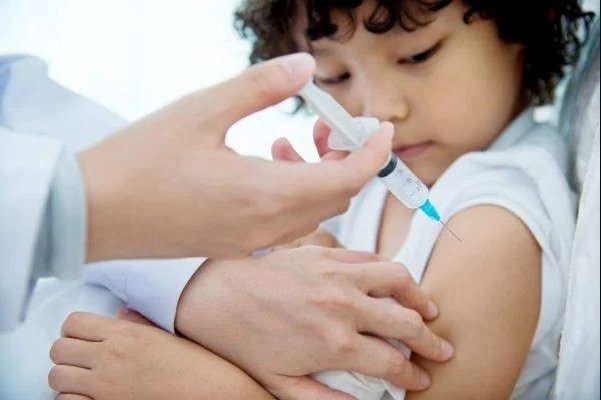a National Immunization Program (PNI) It will complete its 50 years of existence in 2023. For a long time, it was considered a model for the world due to its high rate of adherence and success in managing control of the circulation of viruses highly relevant to public health, but that scenario has changed.
Since 2019, The country failed to meet coverage targets for 15 out of 16 immunizations indicated on the vaccination card for children under 1 year and 1 year of age, according to the data made available by the Informatics Department of the SUS (DataSUS).
Preliminary information on the situation for 2022 shows that BCG just reached the projected target for this yearimmunize 90% of all children under one year of age.
Observa Infância, of the Oswaldo Cruz Foundation (Fiocruz) and Unifase, revealed that coverage of trivalent viral vaccines (against measles, mumps and rubella), quadruple (which includes the first dose of chickenpox, plus measles, mumps and rubella) and hepatitis A, Applied after the first anniversary, it represents less than 50% of the target population. Two out of three children in Brazil did not complete their MMR immunization within the second year of life.
Coverage against DTP (diphtheria, tetanus and whooping cough), poliomyelitisPCV (pneumococci), MenC (meningitis C), hepatitis B and Hib (Haemophilus influenzae type B) have exceeded 70%, but are still far from the target of 95%.
falls into coverage
Juarez Cuna, President of the Brazilian Society of Immunization (SBIM), recalls that since 2015 there has been a decline in coverage, which has continued in the following years and began to increase in 2020.
“In 2021 it was thought that with the vaccination against Covid-19 we would have an improvement in other vaccines, as happened in other countries that had a decrease in vaccine coverage during the pandemic, but what we have seen is a decrease in vaccination coverage,” Juarez explains.
Among adolescents, there was a decrease in vaccination coverage against human papillomavirus (HPV)and ACWY meningitis and other immunomodulators. None of the priority groups reached the target in the influenza vaccination campaign.
These indicators put the country in a critical situation, with the risk of diseases entering, warns the vice-president of the Brazilian Association of Collective Health (APRASCO), Claudio Mairovic, former president of Anvisa and public health doctor associated with the Oswaldo Cruz Foundation (Fiocruz). “We are at risk of a resurgence of diseases that have been eradicated, as happened with measles. Polio is one of the biggest dangers,” he says.
Experts heard before capital Cities point to what The next government will be led by Luiz Inácio Lula da Silva (Workers’ Party), A must do for Brazil to recover from high vaccination rates.
correct information
With the arrival of vaccines against Covid-19, there has been an important commitment from the population to vaccinate the elderly, people with comorbidities and health professionals, but the same has not been seen among adolescents and children. The head of SBIM attributes the problem to the difficulty of obtaining correct information for the population, including by the Ministry of Health itself, and to the beginning of a political and ideological discussion that has shaken confidence in vaccines.
“Covid-19 vaccination coverage is very low in childhood. The epidemic is not over yet. The pediatric population suffers much more compared to the beginning of the epidemic because it is still an unprotected part. We are at a time of increasing cases of infection, hospitalizations and deaths among children and adolescents. This can be avoided Because vaccines protect against the most dangerous forms, ”Kunha assesses.
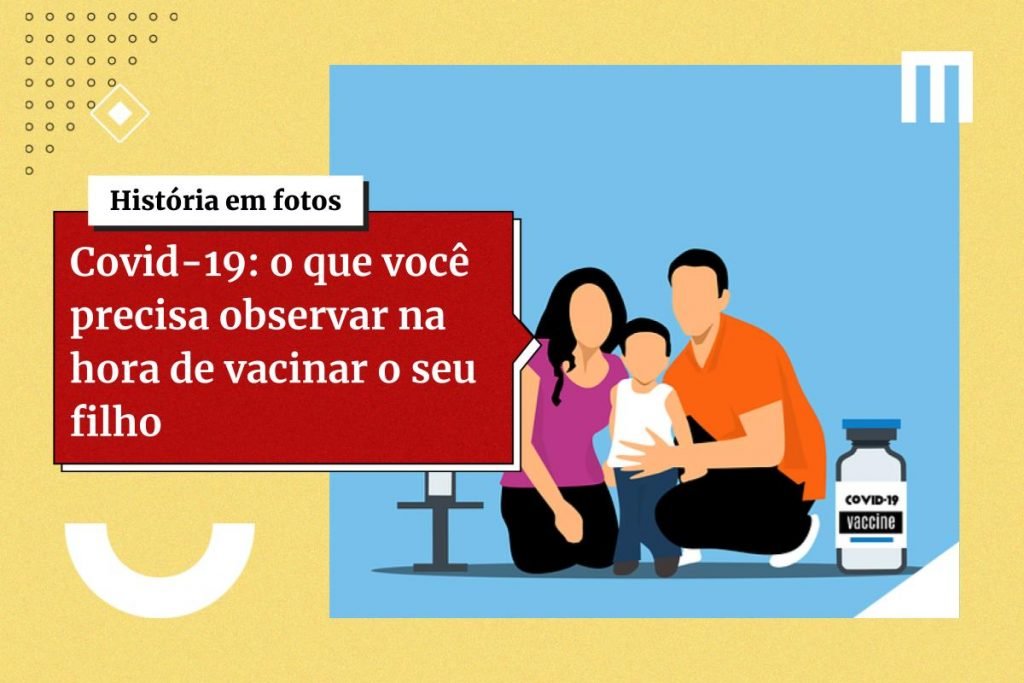 Copy of 3 cards_galleria_de_photos (1)
Copy of 3 cards_galleria_de_photos (1)After approval by the National Health Surveillance Agency (Anvisa) and authorization by the Ministry of Health, the pediatric dose of the Covid-19 vaccine is already being administered in Brazil to children between the ages of 5 and 11. However, parents should be careful to avoid mistakes in immunization application in young children. pixabay
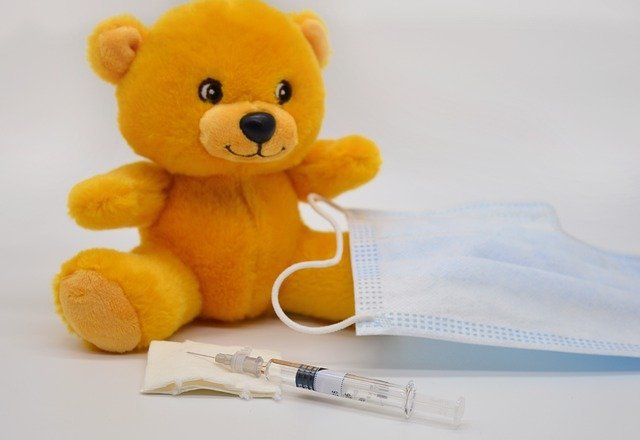 *** teddy bear- g3abd3b01d_640
*** teddy bear- g3abd3b01d_640According to Fiocruz, vaccinating children against Covid is necessary to prevent the spread of the virus at high levels, in addition to ensuring the health of the little ones.pixabay
 ***children
***childrenAlthough a prescription is not necessary for vaccination, the federal government recommends that parents seek out a health professional before having their children get vaccinated.Brazil agency
 *** Kids (1)
*** Kids (1)According to Anvisa, the vast majority of adverse events after vaccination are due to administration of the wrong product for the age group, insufficient dose, and wrong preparation of the product.Brazil agency
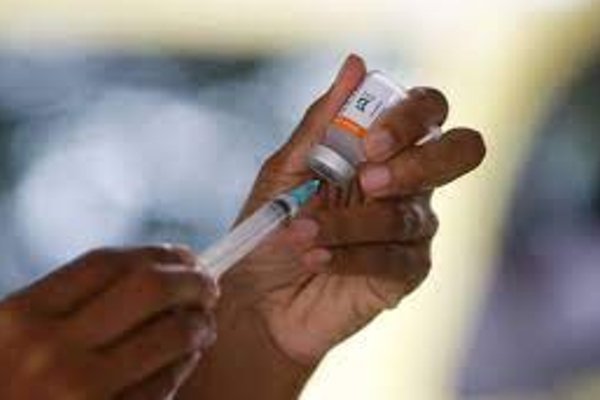 *** Kids (2)
*** Kids (2)The children’s vaccine comes in orange packaging, which differs from the version for people over 12 years of age, which is purple. The syringe used is 1 ml, and the applied volume should be 0.2 mlBrazil agency
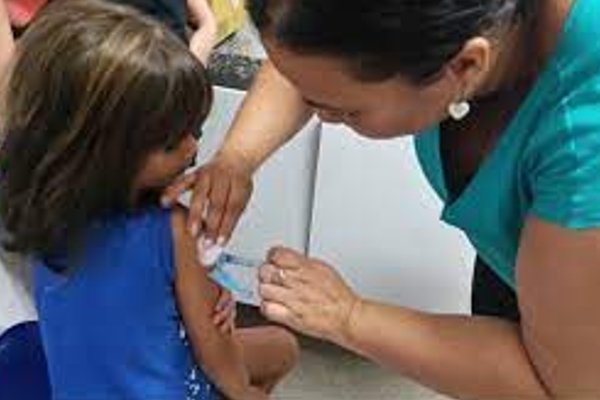 *** Children (5)
*** Children (5)The correct determination of doses for children aged 5 to 11 years is an obligation of the public authorities, who must also ensure the effective training of all the responsible team.Brazil agency
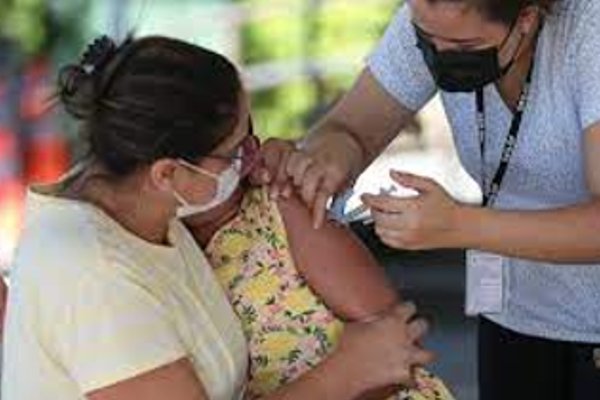 *** Kids (4)
*** Kids (4)According to Pfizer, the amount applicable to children has been carefully chosen based on safety and immunogenicity data.Brazil agency
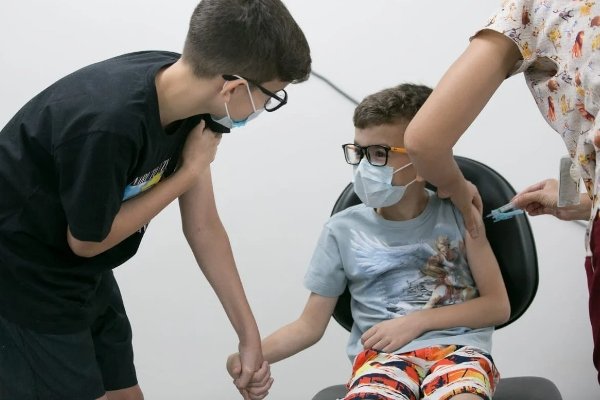 *** Kids (6)
*** Kids (6)Pharmaceutical clinical studies have indicated a lower potential for adverse reactions at lower doses. The immune responses were also more efficient because children usually have a stronger immune response. Rafaela Feliciano / Metropolises
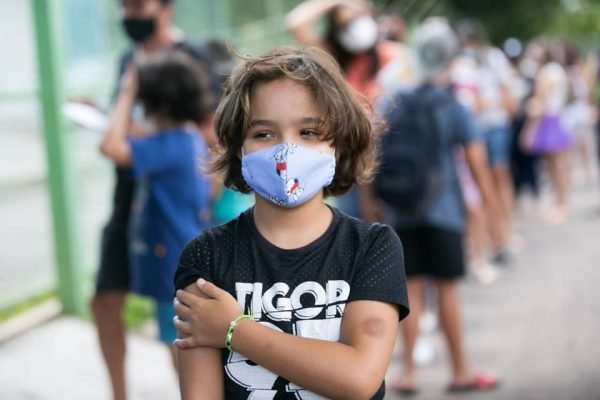 *** Vaccinate children df17
*** Vaccinate children df17According to Pfizer data, about 7% of children who received a dose of the vaccine had some reaction, but only in 3.5% of the events were vaccine-related. None of them were serious.Rafaela Feliciano / Metropolises
0
The specialist estimates that the past two years have been challenging, as confidence in the safety and efficacy of vaccines has been shaken, as well as in government officials, health professionals and institutions. “Everyone needs to pass on messages of confidence and we’ve seen quite the opposite in the last couple of years, which has had an impact,” notes Cunha.
public policy
Representatives of the main health entities of the country, including the Brazilian Societies of Pediatrics (SBP), Immunizations (SBIM), Infectious Diseases (SBI), the Pan American Health Organization (OPAS-WHO), Fiocruz – Bio-Manguinhos and the Brazilian Confederation of Obstetricians and Gynecologists (FIBRASCO) They sent a document to the Lula government’s transition team with proposals for improvements and progress in the PNI.
“It is very important that we restore the effectiveness of the National Immunization Program itself. It was a good and successful program, but it was delegated to a much lesser plan, ”the head of SBIM assesses.
The entities agree that vaccine-related information needs to be communicated uniformly, starting with schools. Another strategy is to conditionalize populations in need to participate in income transfer programs such as the Bolsa Família.
The document proposes making a connection with saving the image of Zé Gotinha, the national symbol for childhood immunization. As well as honoring successful vaccination initiatives and creating “vaccine ambassadors” to set an example for society.
PNI management
Experts suggest strengthening management of PNI, making it one of the federal government’s priority programmes. Actions should include a larger budget and a reformulation of management and decision-making structures.
Other measures that are considered necessary are the setting of goals and deadlines for the control, eradication and eradication of certain diseases. The results obtained by the municipalities – part of the Unified Health System (SUS) – must be evaluated by awards.
It also calls for health authorities to unify and digitize vaccination data, with the establishment of a digital system for recording doses and information about coverage, separated from municipalities. Individual data should also be made available digitally to users, with the aim of encouraging people to monitor and control their vaccination status.
Get news from capital Cities on your Telegram and stay on top of everything! Just access the channel: https://t.me/metropolesurgente🇧🇷

“Wannabe internet buff. Future teen idol. Hardcore zombie guru. Gamer. Avid creator. Entrepreneur. Bacon ninja.”

